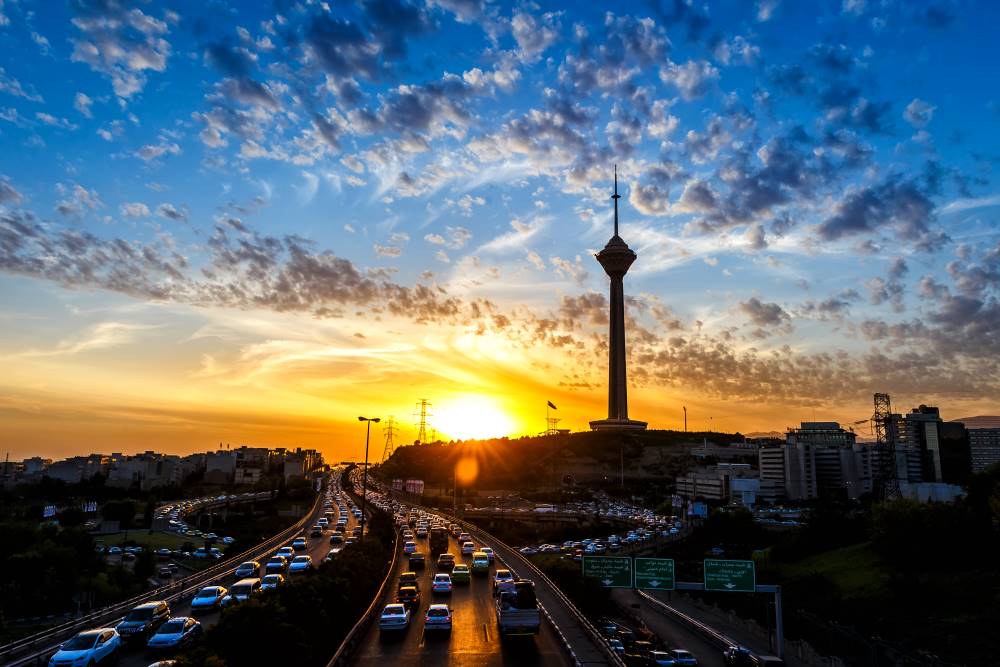By: Michael Lipin
Iran’s shutdown of domestic Internet access as part of a crackdown on anti-government protests has stretched beyond four days, an unprecedented outage that has caused growing harm to the economy.
London-based Internet monitoring group NetBlocks posted a tweet early Thursday in Iran, saying the “near-total” Internet shutdown had surpassed 100 hours since it began late Saturday.
“Digital rights are human rights: access must be restored to all Iranians,” the group added.
Iranian authorities imposed the shutdown to stop opposition activists from communicating and posting online images of nationwide protests that erupted last Friday in response to the government’s abrupt 50% increase in the subsidized price of gasoline. The protests had spread to more than 50 urban centers in Iran by Saturday, according to images received from Iran and verified by VOA Persian.
Many Iranians see the gas price increase as putting a further burden on their wallets at a time of worsening economic conditions. Iran’s currency has slumped versus the dollar, while inflation and unemployment have soared in the past year, as the U.S. has tightened economic sanctions aimed at pressuring Tehran to stop perceived malign behaviors. Government corruption and mismanagement also have contributed to the malaise.
“Mismanagement by the Iranian regime is helping to make the U.S. sanctions more effective,” Ilan Berman, a Middle East security analyst at the American Foreign Policy Council, said in a VOA Persian interview.
“Iranians are angry at the regime for the way it is conducting political and economic business. There is much less anger directed at the United States. Iranians know who the real culprit is,” he said.
State-approved Iranian news sites published several articles on Wednesday, highlighting ways in which the internet shutdown has been hurting the economy even more.
Economics news site Eqtesad quoted Communications Minister Mohammad-Javad Azari-Jahromi as saying online business transactions “have fallen by 90%” since the outage began.
Conservative news agency ILNA cited Tehran Chamber of Commerce member Ali Kolahi as saying the shutdown “presents us with problems in exports. We have no idea where our shipments are.”
Kolahi added that if the internet is restored “in the next couple of days, it may be possible to reverse some of the damage to our international image, but if this situation continues, it will be too late.”
The internet outage also has caused losses in the Iranian stock market, according to pro-government news site Bahar News in a report citing Investors Guild secretary Said Elsami.
Another article by the ISNA news agency quoted Abolfazl Hoseyn-Beygi, a member of Iran’s Supreme National Security Council (SNSC), as saying: “With the arrest of the main elements [activists] of the protests, the internet will be reconnected in the coming days.”
Iranian President Hassan Rouhani told a Wednesday Cabinet meeting that his government has achieved “victory” over Iran’s foreign “enemies” by suppressing the protests. State media have reported the arrests of at least 1,000 people whom authorities accused of engaging in violent confrontations with security personnel, damaging businesses and looting.
Some of the damage from the unrest could be seen in a video from the south-central city of Shiraz, filmed on Wednesday and sent to VOA Persian. Branches of multiple banks had their windows smashed. It was not clear who was responsible.
Many of the protests seen in videos from the first few days of the unrest were peaceful.
The ongoing internet shutdown made it difficult to verify whether the protests have ended. (VOA News)





